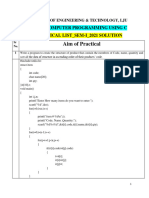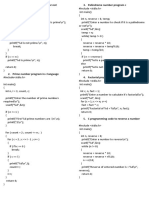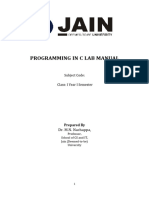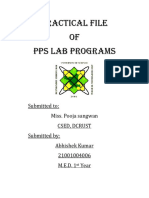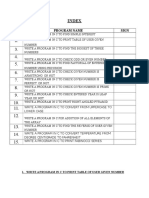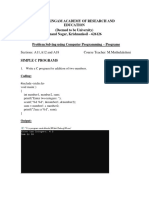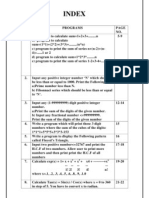0% found this document useful (0 votes)
6 views5 pagesC Programs Answers Part3
The document contains a collection of 150 categorized C programs, including examples for checking prime numbers, calculating sums of digits, and generating patterns. Each program is accompanied by its source code and demonstrates various programming concepts such as loops, conditionals, and arithmetic operations. The programs also cover topics like palindromes, strong numbers, and perfect numbers.
Uploaded by
ragineedas1Copyright
© © All Rights Reserved
We take content rights seriously. If you suspect this is your content, claim it here.
Available Formats
Download as PDF, TXT or read online on Scribd
0% found this document useful (0 votes)
6 views5 pagesC Programs Answers Part3
The document contains a collection of 150 categorized C programs, including examples for checking prime numbers, calculating sums of digits, and generating patterns. Each program is accompanied by its source code and demonstrates various programming concepts such as loops, conditionals, and arithmetic operations. The programs also cover topics like palindromes, strong numbers, and perfect numbers.
Uploaded by
ragineedas1Copyright
© © All Rights Reserved
We take content rights seriously. If you suspect this is your content, claim it here.
Available Formats
Download as PDF, TXT or read online on Scribd
/ 5







